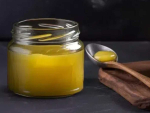The export market is worth over $1.5 billion to New Zealand winegrowers.
The US, Australia and the UK remain significant destinations for our wine but Canada, the Netherlands and China are experiencing growth.
Any winegrower looking to export should not neglect to ensure that brands are safe to use, and are protected, overseas.
Trade mark rights are territorial. This means that a trade mark which you have launched and protected in New Zealand may not necessarily be safe to use overseas.
Before committing to launch a brand overseas you should conduct searches to determine whether it could conflict with trade mark rights already established by another company. You must search country by country. Your searches should cover both:
The trade marks register(s) relevant to each country of interest; and
The general marketplace, by using internet search engines, trade directories and wine wholesale and retail websites.
The risk is that you invest (both in terms of time and money) in preparing for and marketing the launch, plus you may be committed to contracts with third parties, only to receive a letter of demand from a trade mark owner in the overseas country which asserts that your wine brand infringes its rights. Potentially, you may have to recall stock and pay damages.
Thorough searching should alert you to potential conflicts before they arise.
Timing
Allow plenty of time for clearance searches, particularly if multiple countries are being investigated.
Assuming that the searches are clear, you should proceed with trade mark applications promptly after the searching is completed. The longer the time period between searching and filing to protect the trade mark, the greater the risk that someone else could establish conflicting rights in the intervening period.
In most countries, you will not be able to secure a trade mark registration in under six months; frequently it takes much longer. It is therefore good practice to include trade marks early on in your list of tasks when planning for export overseas.
We recommend commencing the trade mark searching and filing process at least one to two years prior to the anticipated launch overseas.
Paris Convention
New Zealand is a party to the Paris Convention. This means that you can file a trade mark application in New Zealand first and then file applications for the same trade mark in most overseas countries up to six months later while still receiving the benefit of the original New Zealand filing date.
In practice, this means that you can file a trade mark application in New Zealand and then use the next six months to determine whether the trade mark is both viable and safe to use overseas. If a third party were to attempt to establish rights overseas in the trade mark during the six month period after filing in New Zealand, you would be able to "trump" the third party by filing overseas and claiming rights dating back to the date of filing in New Zealand.
Madrid Protocol
New Zealand is a contracting party to the Madrid Protocol which is an agreement that enables trade mark owners to create an "International Registration" ("IR") based on a home application / registration.
The term "International Registration" is slightly misleading in that it is not possible to obtain one registration which covers all countries. The Madrid Protocol provides a single filing portal where you can designate several countries in a single application. This will result in individual trade mark applications being created in each of the designated countries. The resulting applications will then be examined in the usual manner and may proceed to registration on a country by country basis.
The benefit of the Madrid system is that it enables you to manage your overseas trade mark applications and registrations from New Zealand, without incurring the cost of engaging overseas attorney firms. However, if any of the applications in countries which you have designated encounter problems, you will still have to appoint a local agent in that country. The Madrid Protocol can be combined with the Paris Convention to claim a priority date from your original New Zealand application for each designated country provided that designation occurs within six months.
Dealing with distributers
When engaging distributers overseas, you should ensure that a suitable contract is put in place which, amongst other things, makes it clear that you retain the intellectual property rights in the brands and labels being distributed.
Sometimes, distributers may register your trade marks overseas in their own names (ostensibly to be "helpful"). It may be difficult to recover the trade mark from them if the relationship sours or a dispute arises with a third party.ν



















